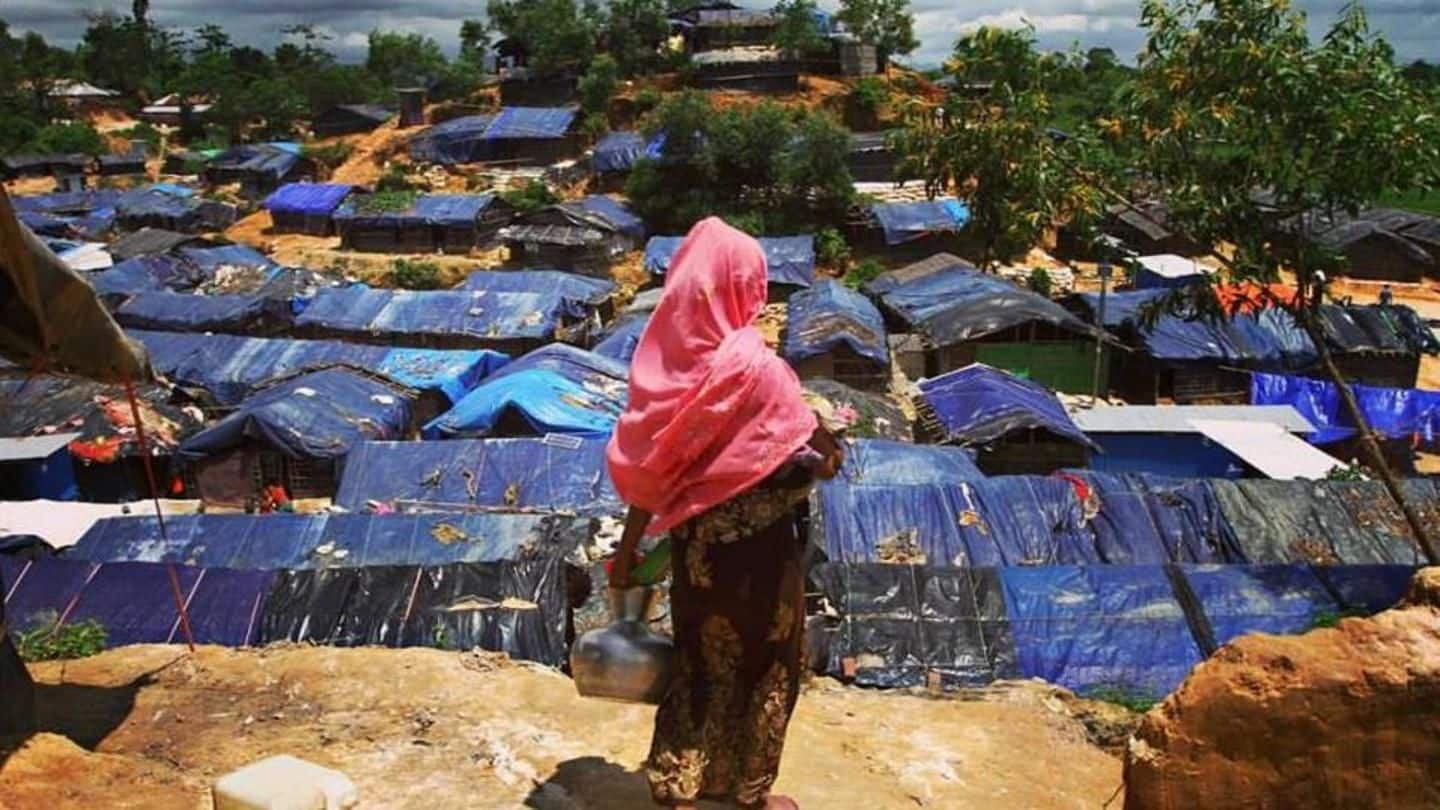
Monsoon threatens tens of thousands of Rohingya refugees: UN
What's the story
The United Nations said that lives of tens of thousands of Rohingya refugees hang in the balance as monsoon and cyclone seasons threaten their makeshift camps in Bangladesh. UN estimates that nearly 700,000 minority Rohingya Muslims have fled to Bangladesh to escape violence in Myanmar's Rakhine State since August 25 last year when the army launched a military crackdown. Here's more.
The Rohingyas
The UN migration agency appeals for urgent financial support
Myanmar doesn't recognize Rohingya as an ethnic group and insists they're Bangladeshi migrants living illegally in the country. UN migration agency, International Organization for Migration, appealed for urgent financial support to prepare the area in southern Bangladesh against floods and landslides. Without new funding, tens of thousands of people in the camps, fleeing violence triggered in Myanmar last will be at risk, IOM said.
Cox's Bazar
We need to be able to act now: IOM official
"We cannot wait for funding to come in after the emergency is over and possibly preventable tragedies have occurred. We need to be able to act now if lives are to be saved," said John McCue, IOM's Senior Operations Coordinator in Cox's Bazar. Almost a million Rohingya refugees live in Cox's Bazar under tarpaulins; 25,000 of them are at the highest risk of landslides.
Refugees
By mid-May, supplies would fall below critical levels
Without aid, numerous refugees will have to remain in these hazardous locations and hundreds of thousands of others will also be at risk if roads become impassible, blocking access to aid supplies and medical services. "Tarp stocks are also rapidly running out and the IOM, which oversees shelter distribution, reports that by mid-May supplies will fall below critical levels," McCue said.
More Funds
Without more funding, new shelters/replacements wouldn't be available to displaced-Rohingyas
McCue pointed out that other risks included safe water supply systems, which if collapsed could put hundreds of thousands of refugees in jeopardy of waterborne diseases. Only 9% of a $951 million joint agency response plan has been secured. Of that, $182 million allocated to provide Cox's Bazar with assistance through December 2018 is facing a shortfall of almost $151 million.
Agencies
Security Council members making their way to Cox's Bazar: McCue
The IOM, World Food Programme, and the UN refugee agency are working alongside Bangladesh's government and others to manage the scale of the response in Cox's Bazar, the world's biggest refugee settlement. "If significant funding is not secured...to keep operations running, there is a high likelihood that many children, women and men may die, when they could have otherwise been saved," McCue said.
UN Secretary-General
8,000 new Rohingya arrivals since Jan'18: UN Secretary-General's spokesman
UN Secretary-General Antonio Guterres's spokesman Stephane Dujarric said the overall population of Rohingya refugees in Bangladesh is currently estimated to be over one million. New refugees are still arriving. The latest round of food distribution reached over 470,000 people and humanitarian partners on the ground also conduct protection monitoring missions to support survivors of sexual and gender-based violence, Dujarric said.
Humanitarian crisis
Joint response plan requests $951mn to respond to 1.3mn people
To date, the joint response plan for Rohingya humanitarian crisis, launched in mid-March, is only 9% funded. UN described the atrocities by Myanmar military on Rohingya refugees as a textbook example of ethnic cleansing while the rights groups called it genocide. Buddhist-majority Myanmar, however, rejects the charge, saying its security forces launched a counter-insurgency operation in Aug'17 in response to Rohingya militant attacks.